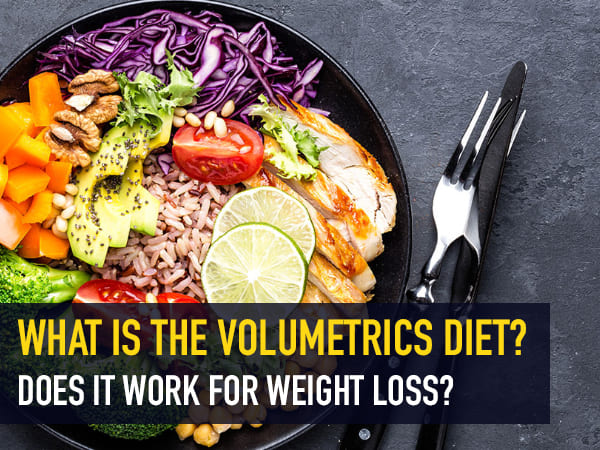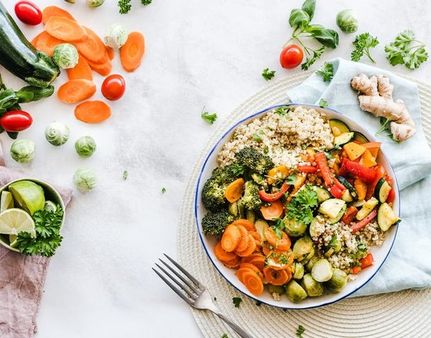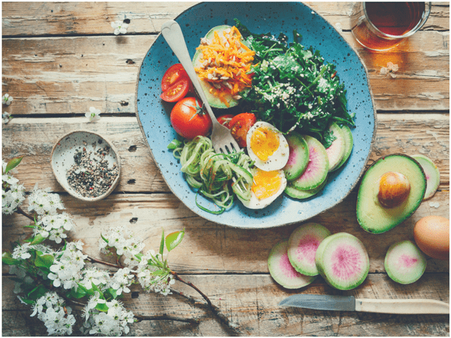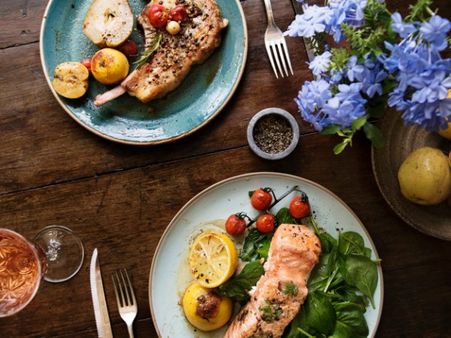Just In
- 4 hrs ago

- 6 hrs ago

- 6 hrs ago

- 6 hrs ago

Don't Miss
- Technology
 HMD Branded First Set of Android Smartphones Are Here!
HMD Branded First Set of Android Smartphones Are Here! - Education
 MP Board Result 2024: Toppers List of Class 10th and 12th is here
MP Board Result 2024: Toppers List of Class 10th and 12th is here - Movies
 Mankatha Re-Release Woes: Ajith-Venkat Prabhu's Action Thriller Faces Issues; To Hit Screens On THIS Date
Mankatha Re-Release Woes: Ajith-Venkat Prabhu's Action Thriller Faces Issues; To Hit Screens On THIS Date - Sports
 Alcaraz: Stopping world's best Sinner not easy in Madrid
Alcaraz: Stopping world's best Sinner not easy in Madrid - News
 Indian MBBS Student, Dasari Chandu, Dies In Kyrgyzstan After Waterfall Mishap
Indian MBBS Student, Dasari Chandu, Dies In Kyrgyzstan After Waterfall Mishap - Finance
 Vodafone Idea FPO: Shares To Debut Tomorrow; GMP Hints Premium Listing; Shares Slump 9%
Vodafone Idea FPO: Shares To Debut Tomorrow; GMP Hints Premium Listing; Shares Slump 9% - Automobiles
 2024 Kia Carens Secures 3-Star Adult & 5-Star Child Safety Ratings – Detailed Look
2024 Kia Carens Secures 3-Star Adult & 5-Star Child Safety Ratings – Detailed Look - Travel
 Mumbai Opens BMC Headquarters For Exclusive Heritage Tour
Mumbai Opens BMC Headquarters For Exclusive Heritage Tour
What Is The Volumetrics Diet? Does It Work For Weight Loss?
Many
weight
loss
diets
claim
that
eating
lower
quantities
can
help
you
lose
weight
fast.
But,
this
can
actually
lead
to
potential
adverse
health
effects
because
you
are
not
eating
enough
quantities
of
food
that
is
needed
to
support
the
basic
functions
of
your
body.
Unlike
many
other
weight
loss
diets
that
deprive
you
of
food,
the
volumetrics
diet
emphasises
on
eating
more
nutrient-dense
foods
while
still
losing
weight.
Yes,
you've
read
that
right-
you
could
eat
a
lot
and
still
lose
weight.

What Is The Volumetrics Diet? [1], [2]
The volumetrics diet is an eating plan that promotes weight loss by eating more foods that are high in fibre, water and low in calories such as fruits, vegetables and soups that will keep you feeling full. The volumetrics diet is based on a book by Dr.Barbara Rolls, a nutrition researcher at Pennsylvania State University. She co-authored the book based on her research.
In her first book, Volumetrics: Feel Full on Fewer Calories, she suggests limiting high-calorie foods and eating various nutrient-dense foods that will keep you satiated with fewer calories.
Her second book, The Volumetrics Eating Plan is a lifestyle guide and cookbook that follows the same principle - eating a lot of low calorie, nutrient-dense foods to lose weight.
The Ultimate Volumetrics Diet is another book that provides new information, recipes and additional tips and tools for readers who want to follow this diet.

How Does The Volumetrics Diet Work?
The volumetrics diet works by limiting high-calorie foods and eating more nutrient-dense foods which are low in calories that will keep you feeling full for longer so that you don't have any hunger pangs often. This diet focuses on healthy eating patterns rather than restricting any foods.
You also need to exercise for 30-60 minutes every day if you are following the volumetrics diet.
In the volumetrics diet, foods are divided into four categories based on their calorie density:
• Category one (very low calorie density) - This category consists of foods that are very low-density such as fruits, non-starchy vegetables like broccoli, tomato and mushroom, non-fat milk and broth-based soups.
• Category two (low calorie density) - This includes eating reasonable portions of whole grains, legumes, lean protein and low-fat dairy.
• Category three (medium calorie density) - This includes eating small portion of foods like desserts, bread, cheese, ice-cream, high-fat meat, etc.
• Category four (high calorie density) - In this category foods are eaten occasionally, which includes nuts, oil, butter, fried foods, cookies and candy.


Does The Volumetrics Diet Work For Weight Loss?
Very few research studies have shown the association of volumetrics diet with weight loss.
According to a study, low calorie density foods such as fruits and vegetables contain a lot of water which when eaten in large quantities can aid in managing weight because the water content in these foods will keep you feeling full for longer [3].
Another study published in the journal Eating Behaviours showed that eating a diet low in calorie density that includes foods such as vegetables and whole grains may help in weight management [4].
As per another study, consumption of foods with low calorie density has been linked to an increase in weight loss in obese people [5].
Another study showed that overweight and obese women who consumed low calorie density foods increased feelings of fullness and decreased hunger, which contributed to losing weight [6].

Pros And Cons Of Volumetrics Diet
Nutritional foods that are low in calories are high in fibre and other essential nutrients which will provide your body with essential vitamins and minerals and may prevent nutritional deficiencies. As mentioned earlier, along with healthy eating the diet also encourages physical activity which can help boost your weight loss efforts [7].
Also, when you are following the volumetrics diet, you have to limit the consumption of processed foods as they are high in calories and they lack essential nutrients. And studies have shown that eating processed foods can increase the risk of obesity, heart disease and several other health problems [8] [9].
However, there are few drawbacks to the volumetrics diet as well. It requires a lot of time and energy when it comes to planning and preparing meals at home and calculating your meals calorie density as suggested in the book. People with a busy lifestyle may find it difficult to follow this diet.
Also, this diet restricts foods high in healthy fats such as nuts and oils. These foods contain monounsaturated and polyunsaturated fats which are beneficial for your body [10] [11].


Should You Follow Volumetrics Diet?
The
volumetrics
diet
can
work
for
people
who
are
looking
for
long
term
sustainable
weight
loss
plan.
Also,
this
diet
doesn't
restrict
any
foods;
it
suggests
eating
high
calorie
foods
in
smaller
portions,
so
it
can
be
considered
a
good
option
for
people
who
are
trying
to
lose
weight.
However,
before
you
start
following
this
weight
loss
diet,
it
is
recommended
to
consult
your
doctor
first.

Foods To Eat On A Volumetrics Diet
•
Fresh
fruits
like
apples,
oranges,
bananas,
peaches,
berries
and
pears.
•
Fresh
non-starchy
vegetables
like
broccoli,
tomato,
carrot
and
kale.
•
Broth-based
soups
like
chicken
soup,
vegetable
soup
and
lentil
soup.
•
Non-fat
dairy
products.
•
Black
coffee
•
Unsweetened
tea
•
Foods
that
can
be
eaten
in
moderation
are
whole
grains,
legumes,
starchy
veggies
and
lean
protein.
Foods To Limit On A Volumetrics Diet
•
High-fat
meat
•
Refined
carbohydrates
like
white
rice,
white
bread
and
white
pasta
•
Full-fat
dairy
products
•
Nuts
•
Oils
•
Processed
foods

Common FAQs
Q. When was the volumetrics diet created?
A. Dr. Barbara Rolls, a nutrition researcher at Pennsylvania State University developed the volumetrics diet based on her research. She co-authored the first book Volumetrics: Feel Full on Fewer Calories, which was published in 2000.
Q. What can you eat on the volumetrics diet?
A. Apples, oranges, bananas, peaches, berries, pears, broccoli, tomato, carrot, kale, chicken soup, vegetable soup and lentil soup.
-
 wellness5 Reasons Why You Might Want To Think Twice Before Embracing A Juice Cleanse
wellness5 Reasons Why You Might Want To Think Twice Before Embracing A Juice Cleanse -
 healthLazy But Effective Weight Loss: 5 Winter Hacks To Shed Fat Without Breaking A Sweat
healthLazy But Effective Weight Loss: 5 Winter Hacks To Shed Fat Without Breaking A Sweat -
 healthDo You Have Hidden Belly Fat? How To Know?
healthDo You Have Hidden Belly Fat? How To Know? -
 healthCricket World Cup: Shubman Gill’s Favourite Food Combo; 3 Ways To Make It Weight Loss-Friendly
healthCricket World Cup: Shubman Gill’s Favourite Food Combo; 3 Ways To Make It Weight Loss-Friendly -
 healthHerbs That Reduce Burn Belly Fat In Two Weeks!
healthHerbs That Reduce Burn Belly Fat In Two Weeks! -
 healthWeight Loss: 5 Ways Psyllium Husk Can Boost Fat Loss; Side Effects
healthWeight Loss: 5 Ways Psyllium Husk Can Boost Fat Loss; Side Effects -
 wellness5 Benefits Of Eating Okra/Lady Finger On A Weight Loss Diet
wellness5 Benefits Of Eating Okra/Lady Finger On A Weight Loss Diet -
 healthWeight Loss: How Long Should You Wait After Dinner To Sleep To Promote Fat Burning
healthWeight Loss: How Long Should You Wait After Dinner To Sleep To Promote Fat Burning -
 healthWeight Loss: Can Drinking Warm Water On Empty Stomach Help To Loose Weight?
healthWeight Loss: Can Drinking Warm Water On Empty Stomach Help To Loose Weight? -
 healthWeight Loss Tips: Morning Snacks To Avoid To Lose Weight And Burn Fat Easily
healthWeight Loss Tips: Morning Snacks To Avoid To Lose Weight And Burn Fat Easily -
 healthDo Not Eat These 5 Ultra Processed Foods If You Want To Lose Weight, According to Experts
healthDo Not Eat These 5 Ultra Processed Foods If You Want To Lose Weight, According to Experts -
 healthWeight Loss Diet Plan To Help Lose 5Kgs In A Week
healthWeight Loss Diet Plan To Help Lose 5Kgs In A Week


 Click it and Unblock the Notifications
Click it and Unblock the Notifications



